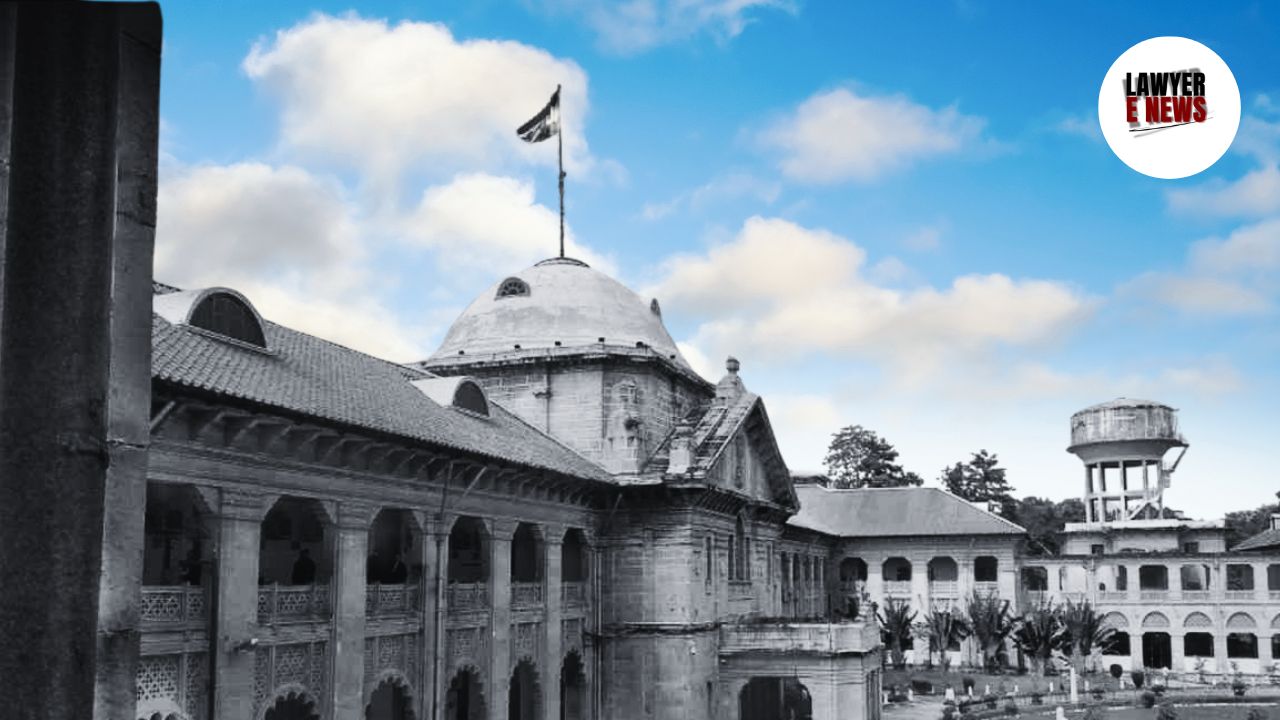-
by Admin
15 February 2026 5:35 AM



The Allahabad High Court delivered a significant judgment concerning the interpretation of Section 28A of the Land Acquisition Act, 1894. The petitioners, landowners whose lands had been acquired under a common notification, challenged the rejection of their application for redetermination of compensation under Section 28A. The rejection was based on the argument that Section 28A is applicable only to awards made by the reference court under Section 18 of the Act, and not to enhanced awards granted in appeals by higher courts under Section 54. The Court quashed the rejection order and directed the authorities to reconsider the petitioners’ application, affirming that appellate awards qualify as “awards” for the purposes of Section 28A.
The petitioners’ land was acquired in Gautam Buddh Nagar under a notification dated April 30, 1976, issued under Sections 4(1) and 17 of the Land Acquisition Act. An award was passed on February 15, 1977, by the Collector, fixing compensation for the acquired land. While the petitioners accepted the compensation without filing a reference under Section 18, some other landowners whose land was also acquired under the same notification sought a reference to the District Judge. The reference court rejected their claim for higher compensation on November 25, 1981. Dissatisfied with the reference court’s decision, those landowners filed First Appeal No. 458 of 1982 before the Allahabad High Court. In its judgment dated April 18, 2022, the High Court enhanced the compensation to ₹28.12 per square yard, along with statutory benefits.
Based on this appellate court judgment, the petitioners filed an application under Section 28A on May 23, 2022, seeking redetermination of their compensation to match the enhanced award granted by the High Court. However, their application was rejected by the Collector on July 29, 2022, on the ground that Section 28A applies only to awards passed by the reference court under Section 18, and not to judgments by appellate courts. The petitioners challenged the rejection order before the Allahabad High Court through the present writ petition.
The primary issue before the Court was whether a Section 28A application for redetermination of compensation could be based on an appellate court’s judgment under Section 54 of the Act, or whether it was limited to awards passed by the reference court under Section 18. The secondary issue concerned the limitation period for filing such an application, specifically whether it begins afresh with each award or judgment granting higher compensation.
The Court began by examining the legislative intent behind Section 28A, which was introduced to address the inequality in compensation payments arising from the inability of poor and inarticulate landowners to file references under Section 18. The provision aims to provide an opportunity for such landowners to seek parity in compensation if higher compensation is awarded to similarly situated landowners under the same acquisition notification. Emphasizing its beneficial nature, the Court held that Section 28A must be interpreted broadly to advance its purpose of ensuring equitable compensation, rather than restrictively in a way that limits its application.
In addressing the applicability of Section 28A to appellate awards, the Court referred to several landmark judgments, including Pradeep Kumari v. Union of India (1995) and the recent Supreme Court decision in Banwari v. Haryana State Industrial and Infrastructure Development Corporation Ltd. (2024). These judgments established that appellate awards under Section 54 are a continuation of the original reference proceedings under Section 18. The Allahabad High Court observed that the appellate stage is an integral part of the judicial process initiated under Section 18 and that appellate decisions must therefore be considered as “awards” under Section 28A. The Court rejected contrary judgments such as Bhagti v. State of Haryana (1997) and Ramsinghbhai Jerambhai v. State of Gujarat (2018), which restricted Section 28A to reference court awards. It concluded that excluding appellate awards from the scope of Section 28A would defeat its legislative intent and perpetuate the very inequality it seeks to eliminate.
On the issue of limitation, the Court reiterated the principle laid down in Pradeep Kumari that the limitation period of three months under Section 28A begins afresh from the date of the award or judgment with which parity is sought. In the present case, the petitioners filed their application within three months of the High Court’s judgment enhancing the compensation, making their application timely. The Court clarified that this interpretation aligns with the purpose of Section 28A, as it allows landowners to file applications based on the most recent award or judgment granting higher compensation.
The Court further emphasized that the role of the Collector in Section 28A applications is limited to verifying the conditions for redetermination and ensuring compliance with the prescribed timeline. The Collector is not required to reassess the merits of the enhanced compensation, as the same has already been adjudicated by the court whose award forms the basis of the application.
In its judgment, the Allahabad High Court quashed the rejection order dated July 29, 2022, issued by the Collector. It directed the Collector to reconsider the petitioners’ application under Section 28A, treating it as maintainable, and to redetermine the compensation in line with the High Court’s appellate judgment in First Appeal No. 458 of 1982. The Court reiterated that Section 28A must be interpreted liberally to achieve its legislative objective of ensuring equitable compensation for landowners affected by the same acquisition notification.
The ruling underscores the principle that beneficial provisions like Section 28A must be interpreted expansively to advance their purpose. By holding that appellate awards qualify as “awards” under Section 28A, the Court has ensured that landowners who could not file references under Section 18 are not denied the benefits of enhanced compensation granted at the appellate stage. The judgment also provides clarity on the limitation period for Section 28A applications, reinforcing the view that the right to seek redetermination arises from the date of the award or judgment with which parity is claimed.
Date of decision - 07.01.2025
